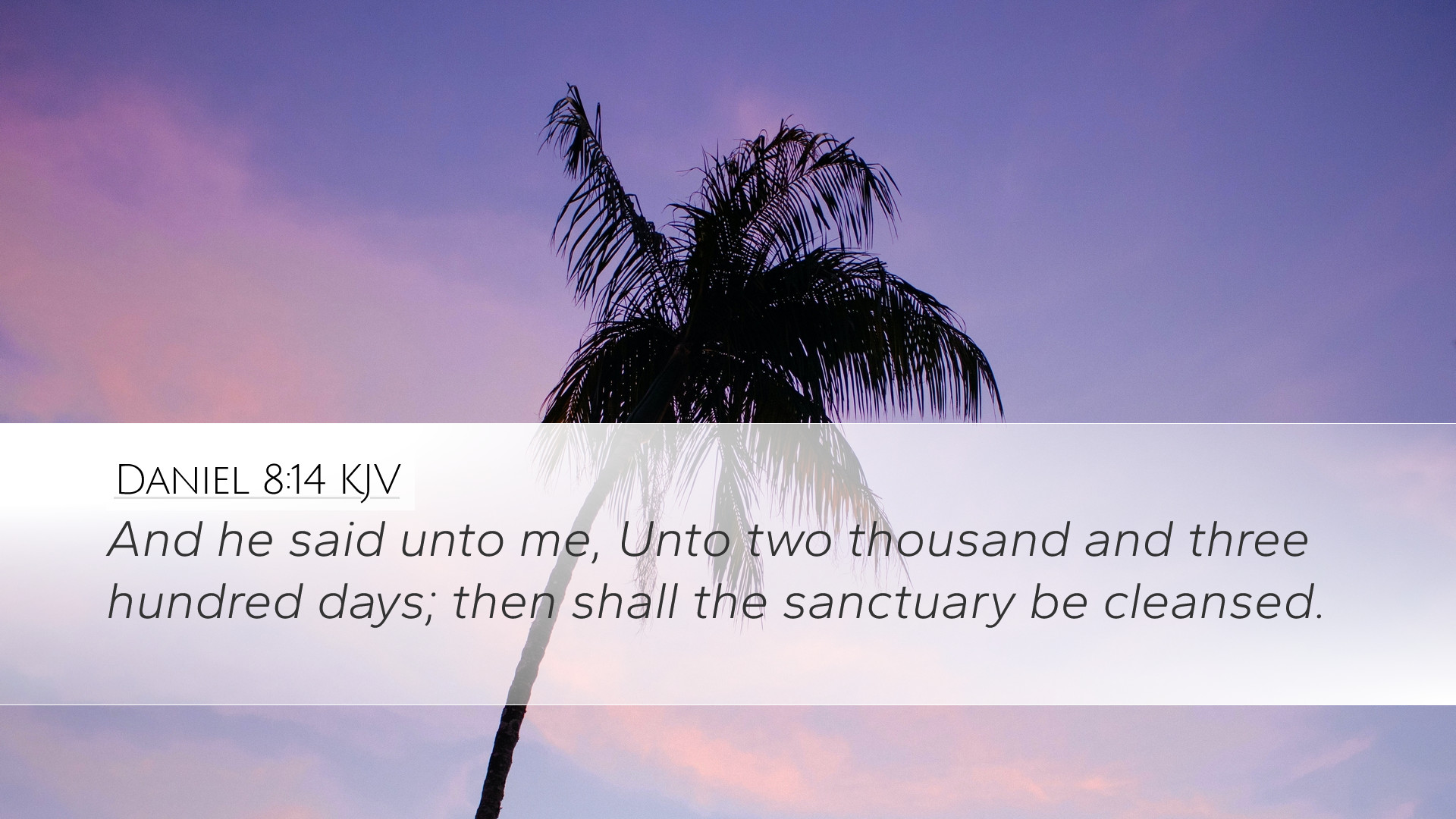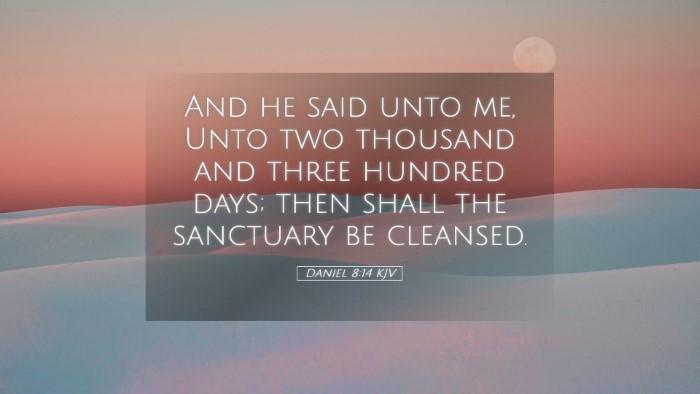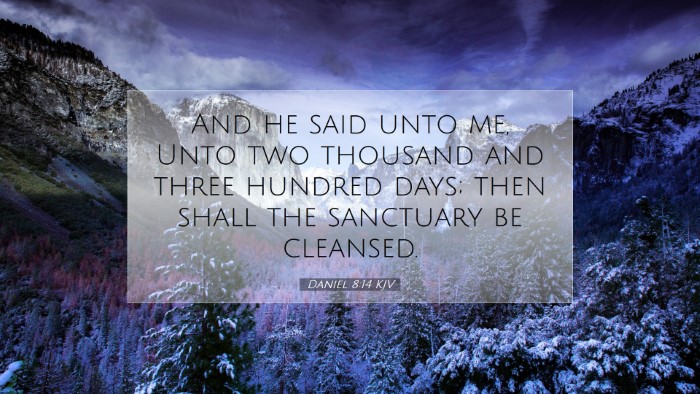Commentary on Daniel 8:14
Verse Context: Daniel 8:14 reads, "And he said unto me, Unto two thousand and three hundred days; then shall the sanctuary be cleansed."
Introduction
This verse, nestled within a profound prophetic vision experienced by the Prophet Daniel, speaks to the duration of a significant period of tribulation and subsequent restoration. Several distinguished biblical commentators have provided insights into the intricate symbolism and theological implications of this passage. Their analyses are essential for pastors, students, theologians, and scholars in understanding the prophetic text.
Insight from Matthew Henry
Symbolism of the Cleansing: Matthew Henry highlights the phrase "the sanctuary shall be cleansed" as indicative of God's promise of renewal and restoration following judgment. The sanctuary, representing God's presence among His people, signifies the site of worship and divine communion. Henry suggests that this cleansing marks the end of desolation brought about by the desecration of the temple.
Historical Context: Henry carefully examines the historical context surrounding the verse, noting the persecution faced by the Jewish people between the decrees of Antiochus Epiphanes and the Maccabean revolt. He emphasizes that this period led to a heightened longing for spiritual renewal, prompting the need for divine intervention and eventual restoration.
Insights from Albert Barnes
Chronological Significance: Albert Barnes provides a detailed examination of the timeline presented in the verse. He interprets the "two thousand and three hundred days" as a symbolically rich timeframe, which many scholars connect to the persecution of the Jews by Antiochus Epiphanes. Barnes points out that the timeline represents a period of trial followed by divine restoration.
Restoration of Worship: Barnes elaborates on the theme of the restoration of worship, encouraging the faithful not to lose heart during periods of oppression. His commentary stresses the future hope that the sanctuary will indeed be cleansed, which serves as a motivator for perseverance among believers facing trials. The cleansing of the sanctuary represents not merely a physical cleansing but a revitalization of spiritual life among God’s people.
Insights from Adam Clarke
Interpretation of Days: Adam Clarke addresses the interpretation of the "days," asserting that these may refer to prophetic periods rather than literal days. He discusses various scholarly interpretations that suggest the days represent years, aligning the prophecy with actual historical events surrounding the Maccabean period and the rededication of the temple in 164 BC.
Theological Implications: Clarke emphasizes the theological implications behind the cleansing of the sanctuary, noting that it symbolizes the ultimate triumph of God's sovereignty over evil. This verse, according to Clarke, reassures believers that despite severe trials, God maintains control over history and is committed to restoring His people.
The Prophetic Nature
In looking toward the prophetic aspect of this verse, it elicits themes of hope, restoration, and divine timing. The period of twenty-three hundred days serves not only as a timeframe but also reflects God's ultimate plan for redemption and renewal.
Theological Themes
- Judgment and Restoration: The passage reflects the dual themes of judgment for sin and subsequent restoration, whereby God cleanses the sanctuary and reinstates true worship.
- Prophecy and Fulfillment: Understanding of this verse is enriched by the recognition of its fulfillment in historical events, illustrating the reliability of God's prophetic word.
- Encouragement in Suffering: The context around the verse serves as an encouragement to believers enduring trials, affirming that suffering typically precedes divine favor.
Conclusion
Daniel 8:14 encapsulates significant theological truths pertinent for believers navigating trials and tribulations. Through the contributions of recognized scholars like Matthew Henry, Albert Barnes, and Adam Clarke, we come to appreciate a multi-faceted understanding of the text that emphasizes hope, divine intervention, and the inexorable movement toward the restoration of God's sanctuary. This verse encourages a posture of faith, confidence in God’s timing, and assurance that He will ultimately revive and restore His people.


